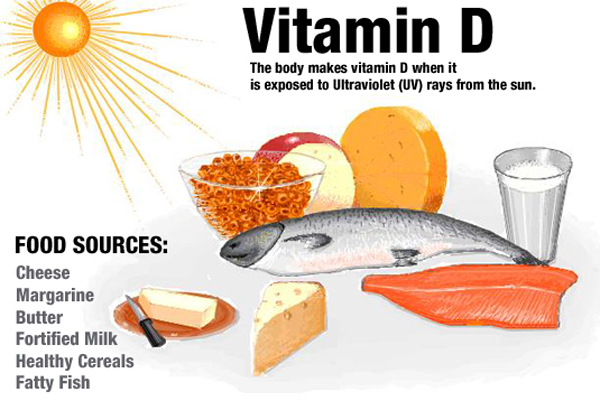TOKYO: High levels of vitamin D may lower the risk of developing liver cancer, a study has found.
Vitamin D is made by the skin in response to sunlight. It helps to maintain calcium levels in the body to keep bones, teeth and muscles healthy.
While the benefits of vitamin D on bone diseases are well known, there is growing evidence that Vitamin D may benefit other chronic diseases, including some cancers.
However, so far, most studies have been carried out in European or American populations, and evidence from Asian populations is limited.
As vitamin D concentrations and metabolism can vary by ethnicity, it is important to find out whether similar effects would be seen in non-Caucasian populations.
Researchers from National Cancer Center and Shiga University of Medical Science in Japan set out to assess whether vitamin D was associated with the risk of total and site specific cancer.
They analysed data from the Japan Public Health Center-based Prospective (JPHC) Study, involving 33,736 male and female participants aged between 40 to 69 years.
Participants provided detailed information on their medical history, diet and lifestyle, and blood samples were taken to measure vitamin D levels.
Vitamin D levels varied depending on the time of year the sample was taken, tending to be higher during the summer and autumn months than in the winter or spring.
After accounting for this seasonal variation, samples were split into four groups, ranging from the lowest to highest levels of vitamin D.
Participants were then monitored for an average of 16 years, during which time 3,301 new cases of cancer were recorded.
After adjusting for several known cancer risk factors, such as age, weight (BMI), physical activity levels, smoking, alcohol intake and dietary factors, the researchers found that a higher level of vitamin D was associated with a lower (around 20 per cent) relative risk of overall cancer in both men and women.
Higher vitamin D levels were also associated with a lower (30-50 per cent) relative risk of liver cancer, and the association was more evident in men than in women.
The findings support the theory that vitamin D may protect against the risk of cancer, but that there may be a ceiling effect, which may suggest that there are no additional benefits beyond a certain level of vitamin D. (AGENCIES)


